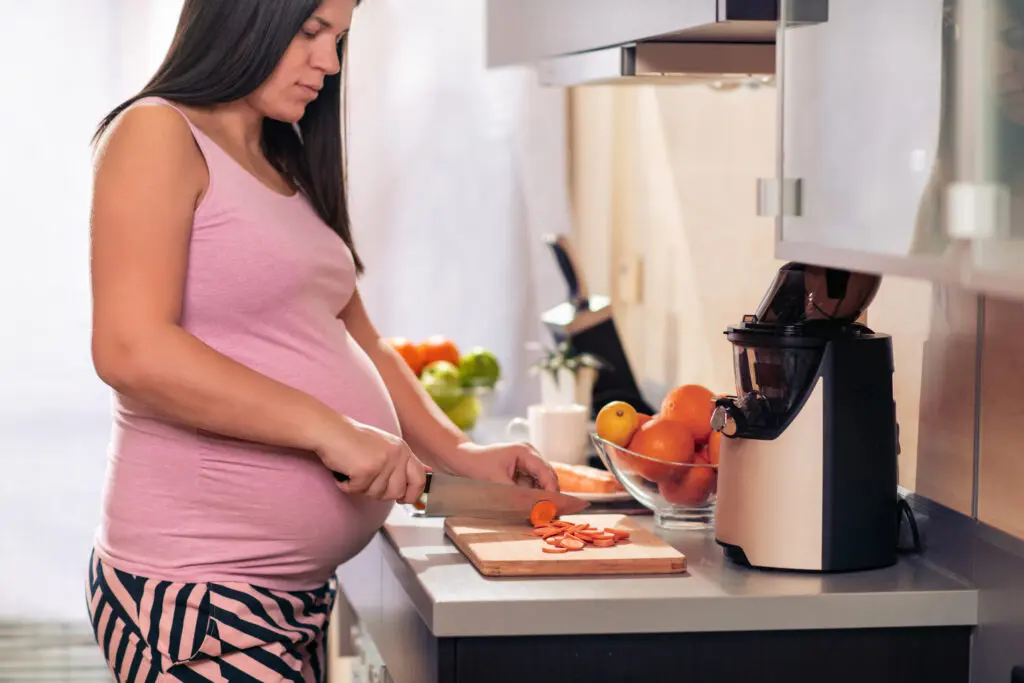Caring for yourself and baby during pregnancy
How do I look after myself and my baby when I’m pregnant?
There are several things you can do to support your own health and the health of your baby. You’ll find it much easier if you have good support, so get your partner and whānau on board too.
Diet & Nutrition
Eat well
Eating healthily during pregnancy will help your baby develop and grow, and it’ll keep you fit and well too.
- Eat a variety of healthy foods every day, including fruit and vegetables, breads and cereals, milk and milk products, and lean meat, chicken, seafood, eggs, legumes, nuts and seeds.
- Aim for nine cups of fluid each day. Water or reduced/low-fat milk is best.
- Your body’s immunity is lowered when you’re pregnant, so you should avoid foods that could be carrying bacteria like listeria, salmonella and campylobacter.
- Choosing the right foods can help some women manage morning sickness early in pregnancy, and indigestion and heartburn later in pregnancy.

Take Folic Acid and Iodine
Take folic acid until you are twelve weeks pregnant. Folic Acid helps prevent birth defects of baby’s brain and spine (spina bifida).
Take iodine daily throughout pregnancy. Iodine helps baby’s body grow and develop, especially the brain. Also eat foods rich in iodine such as seafood, milk, eggs, cereals and bread.
Your midwife can prescribe both these medications.
Avoiding cigarettes, alcohol and other drugs.
Smoking
Smoking during pregnancy affects your baby and can cause health problems such as:
- a low birth weight that could be harmful;
- an increased risk of pneumonia, asthma or glue ear. It also increases the risk of your baby dying suddenly in their sleep;
- a risk of losing your baby (miscarriage or stillbirth).
It’s never too late to quit for your baby. There are phone, web (blog), text and face-to-face services available to help you to quit smoking. Call Quitline on 0800 778 778 or visit Quitting smoking to find out about these services. You can also visit our Have a smokefree home and car page for tips on making your home and car smokefree.
Alcohol
When you’re pregnant, every time you drink alcohol, your baby is drinking alcohol too. All alcohol is carried in your blood stream, through the placenta, to your baby. Your baby can’t break down alcohol like you can.
Women who drink alcohol while pregnant are more likely to give birth to babies who:
- are smaller;
- are premature;
- have developmental, behavioural or physical problems – known as fetal alcohol spectrum disorder (FASD).
If you can’t stop your drinking or are worried about the amount of alcohol you drink, get help!
You can get help by talking to your midwife, doctor, nurse or other health professional. They can discuss ways you can stay healthy during your pregnancy, answer your questions, or put you in touch with others who can help you.
The Alcohol Drug Helpline is also here for you. Contact them on 0800 787 797, alcoholdrughelp.org.nz or free text 8681, 24 hours, 7 days a week.
Alcohol and breastfeeding
Alcohol can reduce a woman’s supply of breast milk. Alcohol is also excreted in breast milk, can be passed on to the baby and may cause damage to the infant’s developing brain. Women who are breastfeeding are advised to avoid consumption of alcohol.
If you choose to drink alcohol while breastfeeding, it is suggested that you wait at least 2 hours before breastfeeding your baby for each standard drink. For example, if you have 2 standard drinks you should wait 4 hours before you breastfeed.
A message for partners and whānau.
You have an important role to play in helping your pregnant partner or whānau member to be alcohol and drug free, and in looking after the health of the baby.
You can support by:
- joining her in being alcohol/drug free;
- discouraging others from offering alcohol/drugs to her or other women who may be pregnant;
- making sure there are non-alcoholic drinks at social gatherings, workplaces, parties and events.
Drugs
Recreational drugs (such as cannabis) are associated with miscarriage, prematurity or dangerously low birth weight.
Methamphetamine can cause significant harm to your baby, including brain damage and birth defects.
Drugs such as heroin may cause your baby to be born drug dependent and suffer from withdrawal symptoms. Drug-dependent babies need expert care if they are to survive.
The use of more than one drug (including alcohol and tobacco) will increase the risks to you and your baby.
If you are using drugs, talk to your midwife (or specialist doctor), doctor or nurse. They will be able to refer you to a local service for help and support. The Alcohol Drug Helpline is also available for free, confidential information, help and support:
- 0800 787 797 (24 hours a day)
- free text 8681
- visit the Alcohol Drug Helpline website.

